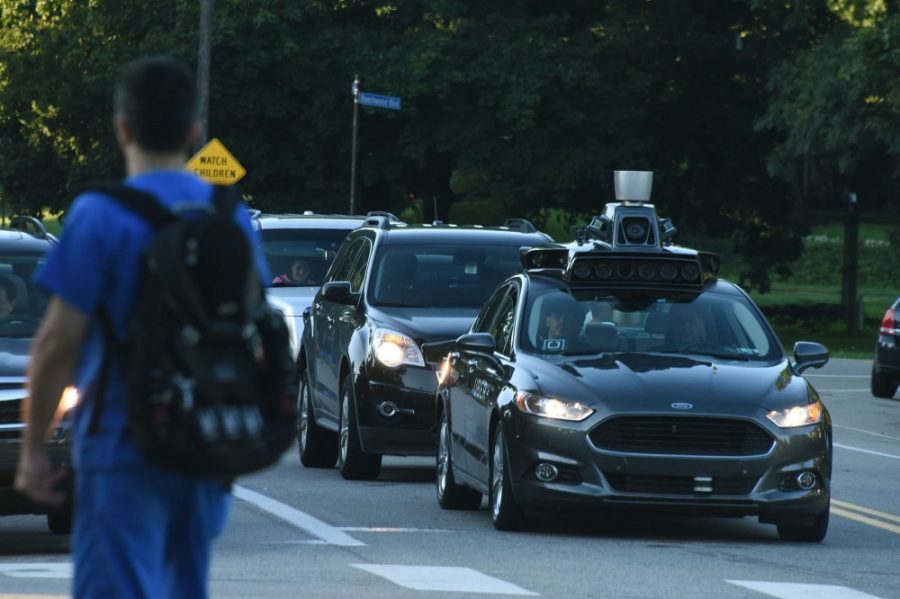UA students may soon be requesting a self-driving car after Uber announced plans last month to ship some of its semi-autonomous vehicles from California to Arizona with support from Gov. Doug Ducey due to Arizona’s more flexible registration and licensing requirements.
Uber originally planned to test the cars in California, but the company denied the demands of state transportation officials to register the cars specifically as test vehicles, according to a recent news release distributed by the office of the governor.
RELATED: Tucson questions texting ban, looks to expand to all use of hand-held devices
“While California puts the brakes on innovation and change with more bureaucracy and more regulation, Arizona is paving the way for new technology and new businesses,” Ducey said in his Dec. 22 news release. “This is about economic development, but it’s also about changing the way we live and work.”
Ducey signed an executive order back in August 2015 stating it was in Arizona’s interest to support the development of those technologies, by allowing testing and operation of self-driving vehicles on certain public roads, in order to continue to advance the technology.
This executive order said the state believes allowing self-driving cars to be tested in Arizona will result in job growth and research opportunities for academic institutions in the state.

A Self-Driving Vehicle Oversight Committee was created and designed to work with companies developing autonomous vehicle technology, to create the most supportive environment possible and promote public safety.
This committee, which first met last August, will aid in developing the policies surrounding self-driving technology, according to the Arizona Department of Transportation website.
“In Arizona, autonomous vehicles have the same registration requirements as any other vehicle, and nothing in state law prevents testing autonomous vehicles,” an ADOT statement said.
This 2015 executive order generated a partnership between UA and Uber as well. Uber donated $25,000 to the College of Optical Sciences in return for the university hosting these mapping test vehicles, according to an August 2015 news release from the governor’s office.
The university’s specific role in testing the self-driving cars is to be determined.
Uber spokesperson Taylor Patterson said nothing has actually been launched or established yet in Arizona.
“Our cars departed for Arizona two weeks ago by truck,” Patterson said. “We’ll be expanding our self-driving pilot there in the next few weeks, and we’re excited to have the support of Governor Ducey.”
RELATED: Arizona ranks No. 1 nationally for DUI enforcement
In the most recent news release about the Uber partnership with Arizona, Ducey said the executive order was signed with an emphasis on “innovation, economic growth, and most importantly, public safety” and the news release also called California’s requested regulations for the cars “burdensome.”
According to the U.S. Department of Transportation, 94 percent of car crashes can be attributed to human error. Companies such as Tesla Motors argue self-driving cars could reduce this statistic greatly.

Danielle Muoio of Business Insider was able to get behind the wheel of one of Uber’s self-driving cars in September 2016.
“The braking was smooth, the response time was quick, and it handled intersections just fine,” Muoio said in her article. “But there were a few times a driver had to take over.”
According to Muoio, unpredictable human drivers, bridges, extreme weather, some vegetation around roads and obstacles that move, such as a family of ducks crossing the road, still pose operation problems for the self-driving cars.
In a statement, ADOT said they hope the cooperation, common-sense approach and the state’s favorable climate will encourage even more companies to test autonomous vehicles in Arizona.
“Arizona is proud to be open for business,” Ducey said in the Dec. 22 statement. “California may not want you, but we do.”Follow Jessica Suriano on Twitter.









